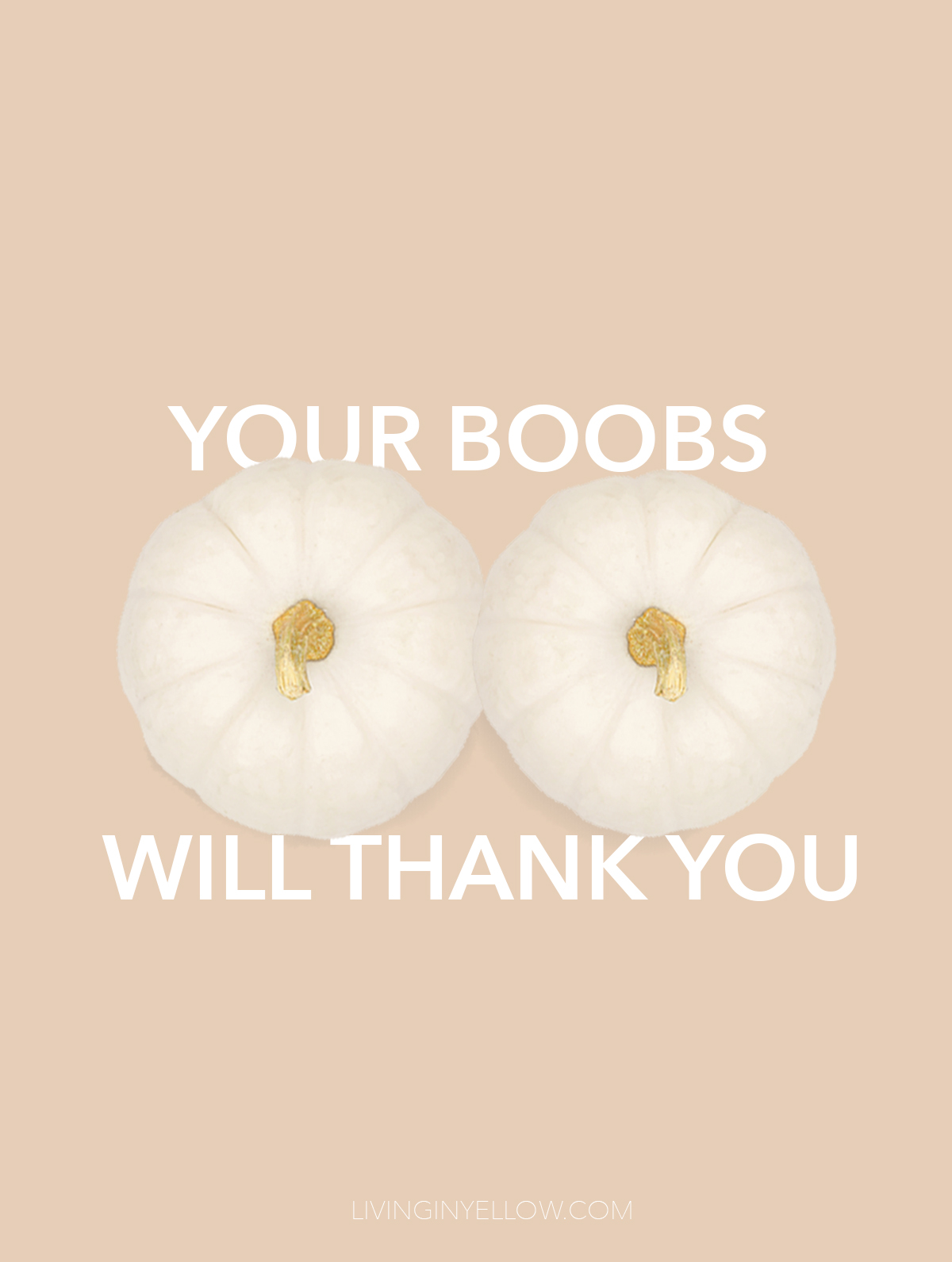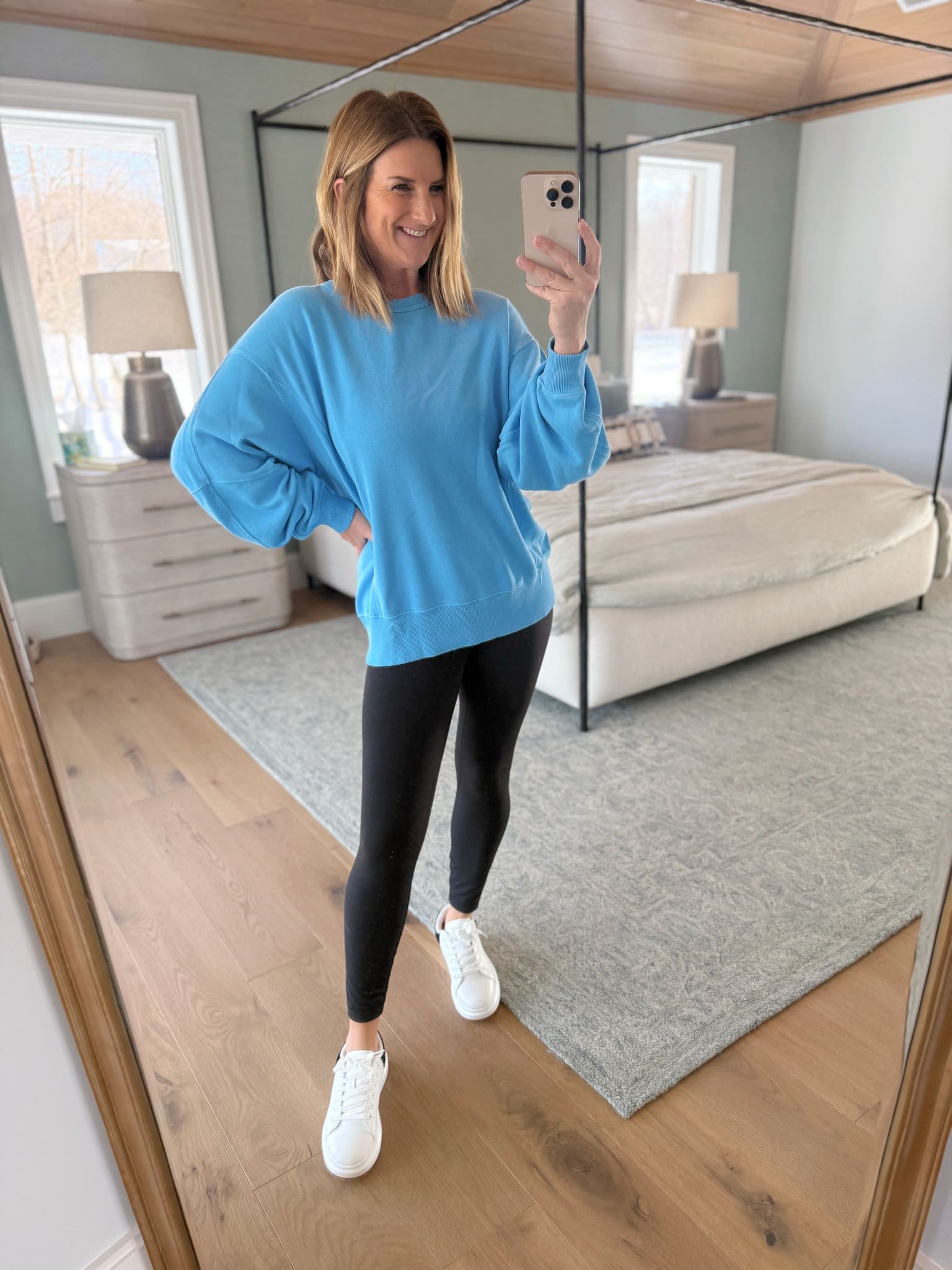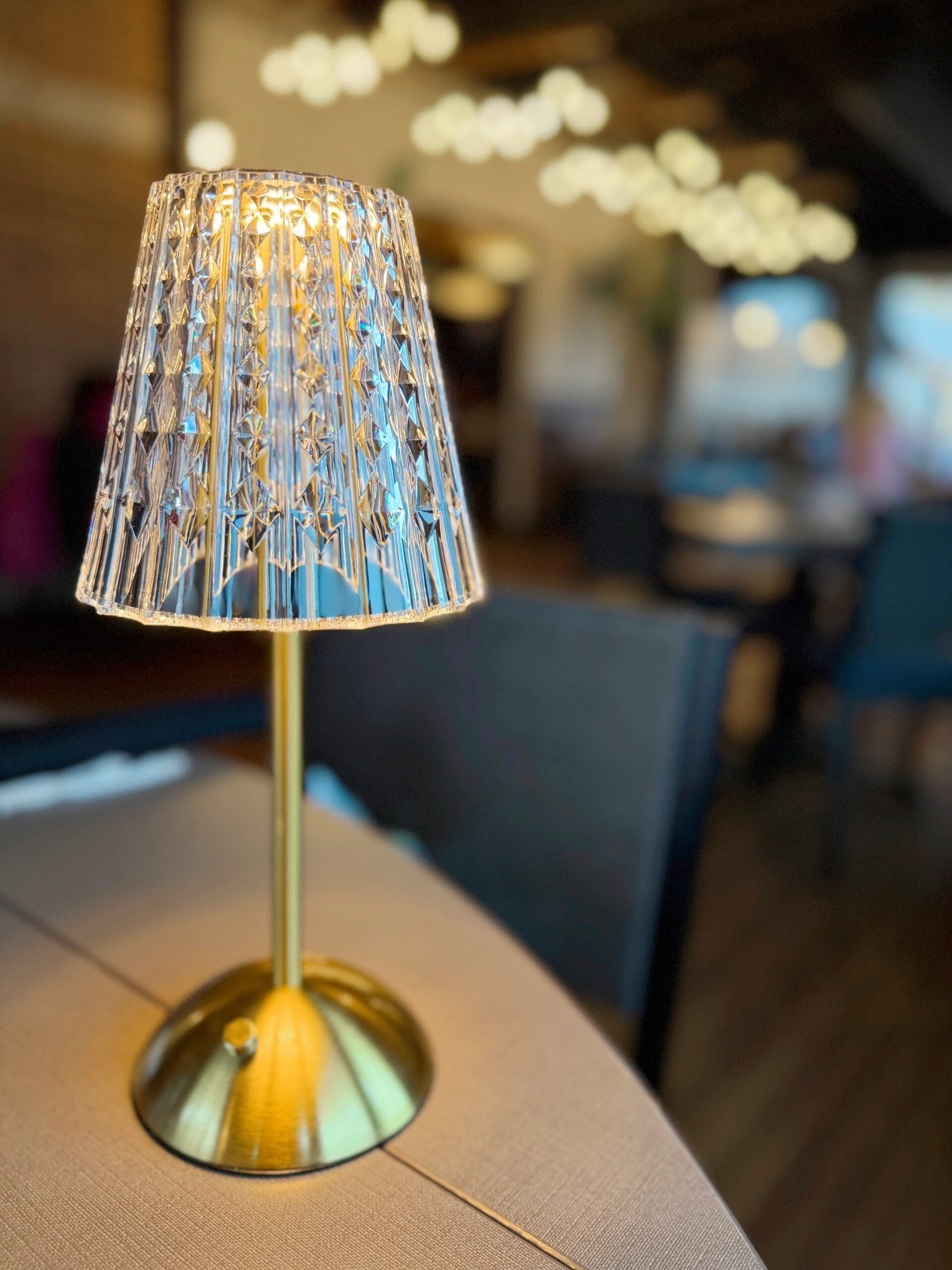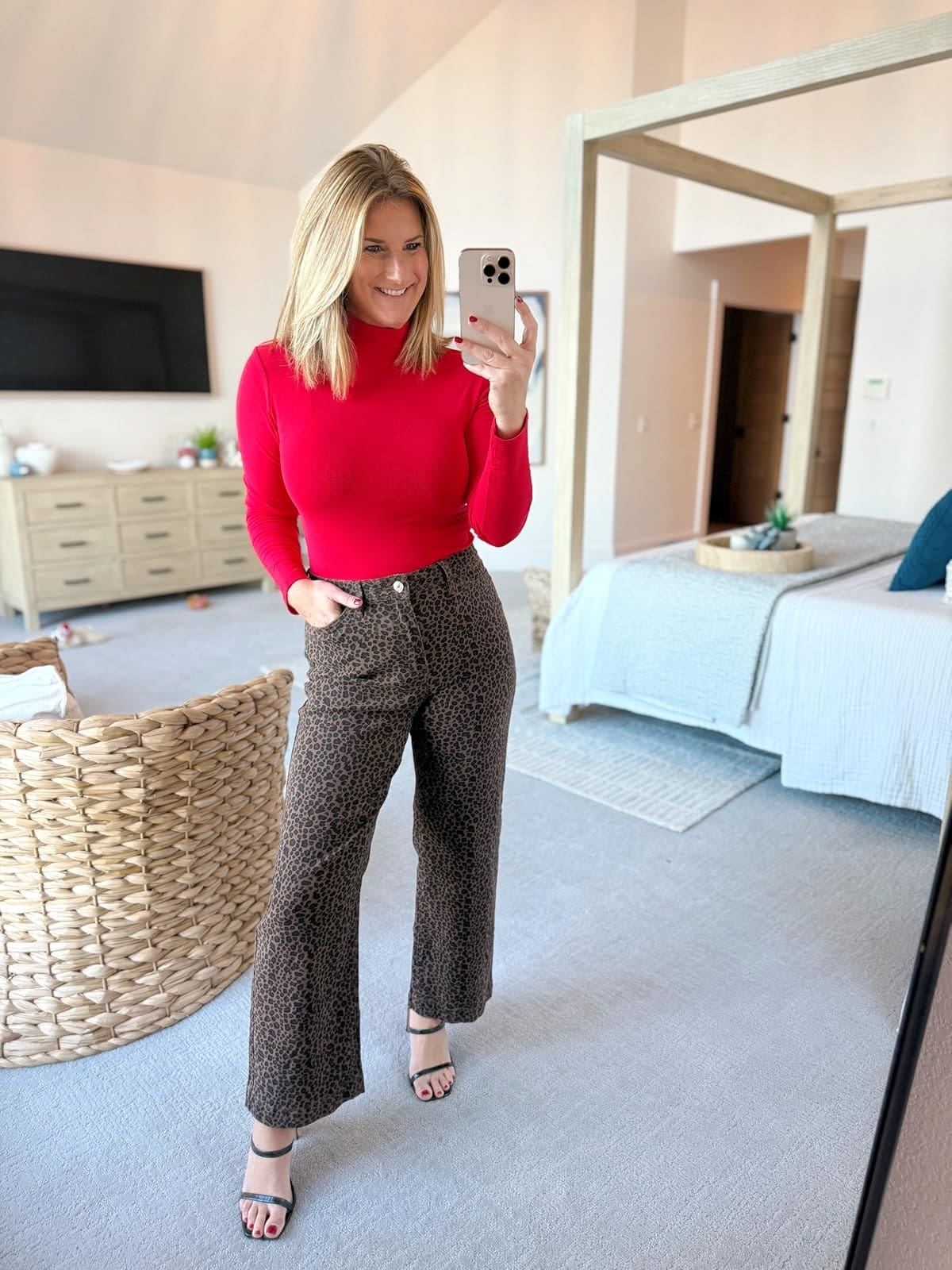 With wrapping up Breast Cancer Awareness Month today, women’s health is top of mind here at LIY. Luckily we know someone who is super knowledgeable on the subject. We recently asked our girlfriend — Steph Brenneman, FNP-BC — about all things lady lumps, and we thought we would share with you!
With wrapping up Breast Cancer Awareness Month today, women’s health is top of mind here at LIY. Luckily we know someone who is super knowledgeable on the subject. We recently asked our girlfriend — Steph Brenneman, FNP-BC — about all things lady lumps, and we thought we would share with you!
Before we begin, just wanted to remind you that the information in this article should not replace heading in to see your personal health care provider or gyno. If you have questions about your health at any time, please see your healthcare provider. You can always talk to friends or favorite Facebook group for advice about everything else — but when it comes to your health, it’s best to stick to the advice of your personal healthcare professional!
Q: So, what’s the skinny on breast self-exams? We might have learned about them eons ago in health class, but I think we could all use a little refresher!
A: Breast self-exams are recommended monthly. They involve both looking and feeling.
First, you want to look in the mirror at your breasts. You can put your hands on your hips and look at them standing up straight and when you bend over. You can then raise your arms above your head and see if that changes anything. You are looking for any irregularities in the breast such as dimpling of the skin.
Then, you want to feel the breasts. You can do this when you are lying down, sitting or standing. Put one arm above your head and feel that breast by using the opposite arm. Then, using 3 fingers in a circular motion, feel all throughout the breast tissue and the armpits.
Q: Thanks for those reminders! Most of us on the team just totally forget about doing these. Any suggestions for getting started?
A: Try marking one date a month on your calendar with a little star, or you can set a monthly reminder in your smartphone.
Another great tip is to do the touching part of the exam in the shower. This gets rid of the fear that someone will walk in on you, plus you’re already rubbing yourself with soap as it is! Just remember to do the visual part of the exam before or after your shower.
Q: How do you know the difference between a mass and just the normal lumps and bumps of breast tissue?
A: In general, breasts are very lumpy. Every person has different lumps and bumps in their breast. If you feel a lumpy area in the breasts, check the other breast. If it is symmetrical, it is most likely your breast tissue. The normal lumps in breast tissue can sometimes feel like mountains and valleys. What you are looking for is a distinct mass, that might feel something like a marble. If you have any questions at all or unsure if you feel lump then call your healthcare provider.
Q: So, that’s why checking your breasts on a regular basis is so important — so you can distinguish between what is normal for you and what might be abnormal?
A: Exactly. Also, I should mention that if you have lumpy breasts that are tender, you most likely have fibrocystic breast tissue which means that your breast tissue is dense. It can make it very difficult to identify new lumps. Checking for symmetry in the lumps is very helpful. Having fibrocystic breast tissue does not make you more prone to breast cancer, but it can make it more difficult for the mammogram to see through the dense tissue. If you have painful breasts, decreasing stress and caffeine can help with the pain. You can also try an over-the-counter vitamin E 400unit supplement. Take it everyday and if you have questions about whether or not you have fibrocystic breasts, contact her health provider for a breast examination.
Q: What about those of us ladies whose ladies are large? Do you have tips for self checking big boobs?
A: Instead of raising your arm over your head, you may use it to support the breast from the opposite side that you are checking to make it easier to do an exam.
Q: When is it advised to start having mammograms?
A: Mammograms are recommended starting at 40 years old. If an immediate family member has had breast cancer at an early age, then you should start mammograms 10 years prior to that family member’s diagnosis. If you have family members who have had breast cancer, you should talk to your health care provider about when to schedule a mammogram and if you would be a candidate for genetic testing.
Q: Let’s talk bras for a minute, is wearing underwire bad for your boobs?
A: This is a common myth — it is not bad for your breasts to wear underwire. However, if you do wear underwire, you should be sized for your bra regularly as they can be much more uncomfortable if the fit is incorrect. Breast size does change frequently with weight fluctuations.
Q: What about sleeping in your bra?
A: This is a common myth as well. In fact, some people may find sleeping in a bra helpful if they have breast tenderness.
Q: We’ve heard mixed reviews about natural deodorant. Your armpits are so close to your lymph nodes that they are a part of the breast-self check! What’s your take, should we make the switch?
A: If possible, it is in your best interest to use natural deodorant. Although, some people do not have very good results with natural products and feel like they still smell. It is trial and error on finding a natural deodorant that works best for you.
Q: Switching gears to our other lady parts. We’ve heard lots of ladies praising a bunch of different products for the vagina. We’ve also heard the warnings against scented products for the vag. If a product is fragrance free, is it ok to use?
A: It is best to keep all products (except for tampons, pads, and diva cups) away from the vagina. Some of these products you mention can cause more irritation than help. The vagina is self-cleaning, so it is actually best to only wash the external vaginal lips with warm water and not use soap of any kind.
If you have vaginal odor, I recommend being seen by your primary care provider to see if you have a pH imbalance, yeast infection or bacterial vaginosis.
As far as the few products I can get behind, some of my patients use over-the-counter RepHresh for chronic bacterial vaginosis, but I would recommend being evaluated first. If you suffer from vaginal dryness and have already been evaluated by your healthcare provider, you can try over-the-counter Replens. And for lubrication with intercourse, I recommended a silicone-based product such as over the counter Wet Platinum.
Q: Let’s talk about panties. Is it ok to ditch your drawers and go commando?
Not wearing underwear can actually cause significant vaginal irritation. It’s also not sanitary, especially if you wear your jeans more than once between washes. Wearing cotton underwear is recommended.
Q: What about shaving and waxing? Is it ok to be as bald as an eagle or is there a reason for keeping your hair down there?
Shaving or waxing is based on personal preference. People do frequently get irritated or get ingrown hairs when they shave or wax. If you have a lot of issues when you shave or wax, I would recommend taking a break and see if that helps.
Q: How frequently should we be getting paps? Seems like they might have changed what they are saying about this.
A: The new Pap smear guidelines are first Pap at 21 years old. From ages 21-29 a Pap test every 3 years. From the ages 30-65 years old a Pap test with HPV (human papilloma virus) testing every 3 years. However, it is still recommended to get a breast and pelvic exam every year even if you are not required for a Pap test. Talk to your health care provider if you fit under these guidelines. If you have a history of abnormal Pap in the past, the guidelines may not apply. Also, if you have changed partners or are worried that your partner is not faithful, then your health care provider may choose to do Pap test more frequently.
Q: Is there anything about women’s sexual health we should know?
A: The media puts unrealistic expectations about sex and about what a woman’s sex drive should be. Women think about quite a few different things at a time (work, making meals, children, exercising, what other people think) and sex is sometimes not a top priority. If you feel this way, you are not alone. The majority of women feel this way for more than one reason. We are made much differently than men and we feel that the weight of the world is on our shoulders. There is no simple answer. Being honest with yourself and your partner is a good place to start and figuring what works for you and your relationship. Just remember, you are not alone.
Also, as women, we need to protect our bodies as much as we can. Condoms are highly recommended to help prevent STI’s. Gonorrhea and Chlamydia are two of the most common sexually transmitted infections. 8 out of 10 people do not have any symptoms. Untreated, they can cause scarring to your tubes and can cause infertility. Annual STI testing is recommended for ages 25 and under or with any partner change.
Q: Thanks for sharing that. Anything else that you would want women to know?
A: Follow your intuition. If you feel like something is not right, go to your health care provider. You know your body better than anybody else.
Thanks again to Steph Brenneman, FNP-BC for answering all our crazy questions! We hope you found this as informative as we did! And remember that if you have any questions regarding anything you read, please see your healthcare provider.


